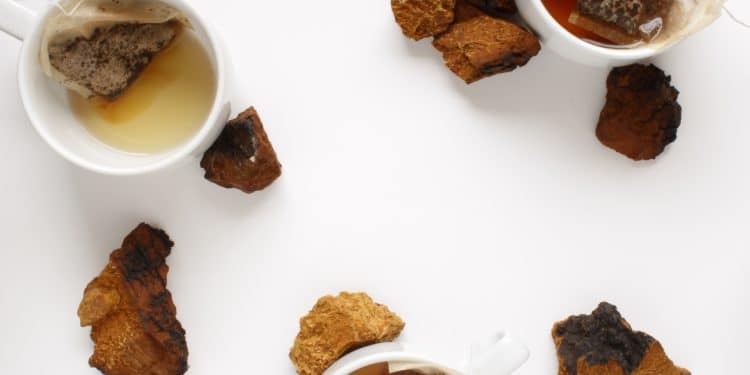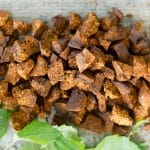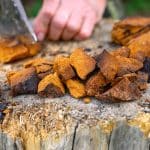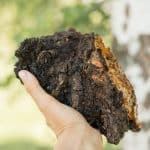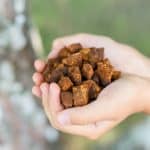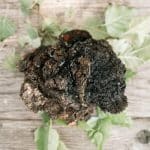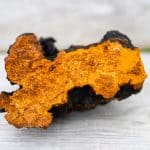What is commonly misidentified as burnt wood or a wooden burl growing from the birch trees of the Northern Hemisphere is in fact the most antioxidant-rich food on the planet, Chaga mushrooms. It is a parasitic mushroom that helps to regulate ecosystems, killing trees no longer capable of supporting themselves.
After Chaga has killed off a Birch Tree, and caused it to crash onto the forest floor, other saprophytic mushrooms such as Turkey Tail and Lions Mane will recycle the dead Tree into the new soil.
Does Chaga Mushroom Contain Antioxidants?
Yes, chaga mushroom contains very high amounts of antioxidants. Chaga contains higher amounts of antioxidants than almost any other food on the planet.
Chaga has a long history in folk medicine as a natural anti-inflammatory, intestinal soother, and immune booster. Today, science supports that the anti-inflammatory terpenes, antioxidants, and immune-modulating polysaccharides contained in Chaga may help people manage conditions such as leaky gut, irritable bowel syndrome, and inflammation caused by autoimmune disorders.
Is Chaga a Superfood?
You may have heard of the anti-inflammatory properties of turmeric, blueberries, and Acai, since they are celebrated for their abundant antioxidants that fight free-radical damage, which helps to decrease inflammation. While these can all be classified as powerful anti-inflammatories, Chaga is up to five times more concentrated in antioxidants than any of those foods, definitely making it a superfood.
Learn more: Is Chaga Mushroom safe during pregnancy and breastfeeding?
It is especially high in an antioxidant known as superoxide dismutase (SOD). SOD is extremely helpful for skin, since it has been shown to decrease the damage caused by free radicals, ultimately protecting against creases, fine lines, and aging spots.
What Does Chaga Do To Your Body?
More impressively, it has also been shown to play an outsized role in the minimization of cancer cells across the entire body. Another nutrient grouping that gives Chaga its anti-inflammatory effects are the terpenes that it extracts from the bark of its host trees and concentrates within its tissues. While these help to reduce inflammation in the entire body, they also play an outsized role in Chaga’s antimicrobial properties. One of the terpenes, known as betulinic acid, shows a lot of activity in decreasing threats from viruses, fungi, and bacteria.
Learn more: How to dry chaga mushroom
One study of betulinic acids biological activities showed that it has a suppressive effect against the HIV virus, and other viruses that are not so dangerous, such as influenza and Hepatitis-C. Along with its anti-inflammatory properties, Chaga also contains unique polysaccharides which exert immune modulating effects on our human immune system. If you think about your immune system as a radio on AM/FM, then turning up and down your dial in search of the clearest signal is much like modulating the immune system. A clean radio signal is the equivalent of an immune system functioning correctly.
If the immune system is tuned too low, our health is compromised and illness sets in. Alternatively, if it is tuned too far up, now we are experiencing autoimmunity, in which our immune system attacks our own bodies.
You can find our favorite capsules, powders, and tincture’s on the following pages of our website and learn more about each individually:
